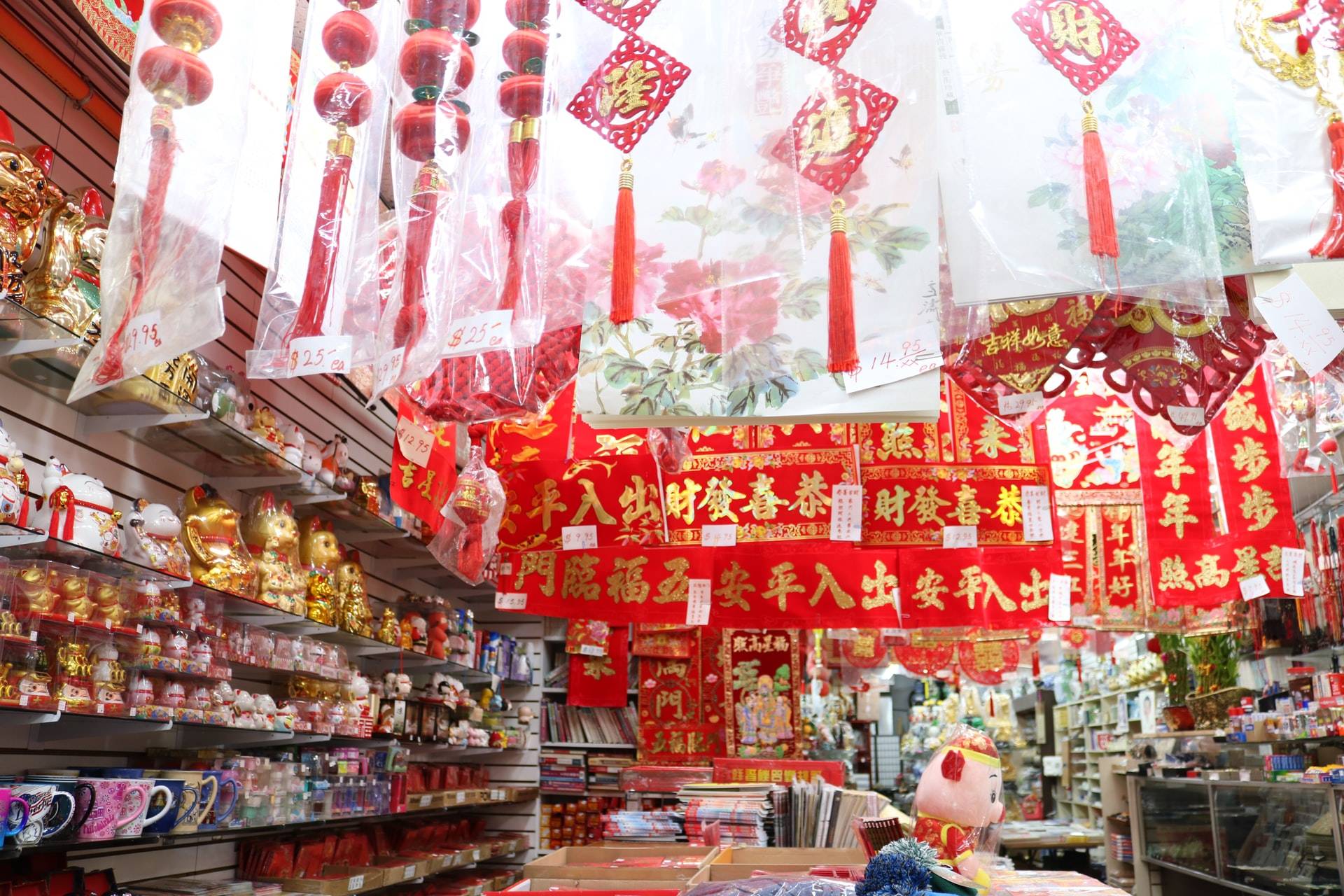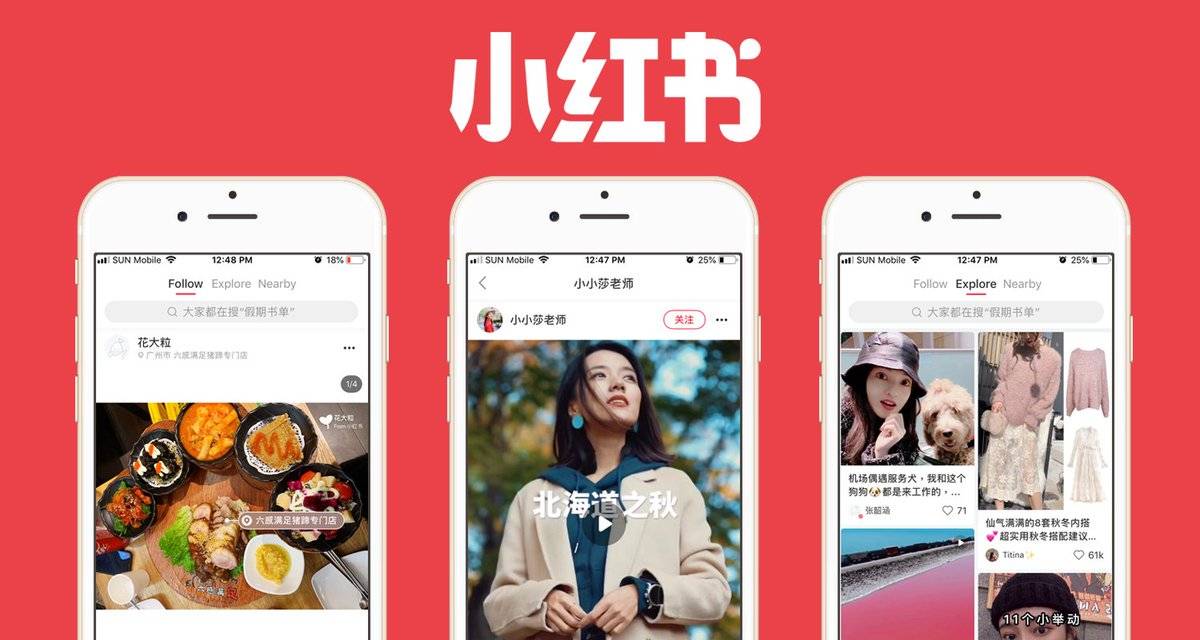
Without doubts, Chinese shopping festivals are the backbone of the Chinese e-commerce sector. From the beginning of the year till the end, almost every month, Chinese consumers are called to join different shopping festivals.
For marketers it means the possibility to catch plentiful business opportunities. Events such as Singles’ Day and 618 earn the spotlight, reaching a large demographic across the country. However, businesses hoping to sell to specific consumer subsets also have a variety of more niche events to choose from.
Chinese shoppers respond strongly to sales and special promotions, that’s why these shopping festivals offer enticing opportunities for cross-border businesses wanting to achieve higher sales, gain brand recognition, and market themselves towards Chinese consumers.
Today we’ll try to give you an overview of China’s biggest e-shopping festivals. How many of them have you heard of? Which are new to you?

新年快乐! Chinese New Year (January- February)
Also known as Spring Festival, Chinese New Year is China’s most important holiday and is always one of the highest sales seasons in the country. Gifts have long been exchanged on this holiday; however, with the dawn of online shopping, gift giving has reached new heights.
In this framework, bannianhuo (办年货) is a Chinese custom before Chinese New Year / the Spring Festival and it refers to the period before the holiday when people are shopping and getting prepared. E-commerce platforms generally start mega-sales 2 weeks prior because all logistics and delivery services halt for 7 days during the festival as the whole country goes on holiday.
Popular items are home appliances and gifts for children, while food and beverage products are the most common type of gift.
Although it originated in the West, Valentine’s Day has become an increasingly popular date for shopping in China, both for couples and optimistic singles.
From Tmall to Jumei, an online retailer of beauty products, most platforms have good deals on gifts for women such as handbags, accessories, skincare and makeup products.
As well as Singles Day history, the Girl’s Day has the same plot. The 8th March has been traditionally associated with married middle-aged women and young women feel left out. So some university students created the Girls’ Day on Mar 7th as a way of celebrating girl power, making the day an unofficial holiday.
E-commerce platforms already caught the opportunity: according to data, Chinese female shoppers represent a huge market, almost 70% of the whole Chinese online buyer.
Thus, seeing the increasing consumption power of this generation, e-commerce platforms also joined the trend and started sales with related themes, such as Tmall’s Queen Festival, JD’s Butterfly Festival, Suning’s GirlFriends’ Day and Jumei’s Goddess Festival.

Originating from an international holiday, Children’s Day has recently become a popular shopping festival, with promotions beginning at the end of May and lasting through the first week of June.
Advertising during Children’s Day is mostly geared towards parents, who are increasingly expected to buy gifts for the event. Products on sale during Children’s Day include items such as toys, board games, children’s wear, and children’s shoes.
Suning.com, the largest online retailer of home appliances in China, has chosen Apr 8th as a promotion day for home appliances and electronics. Items such as smart televisions, refrigerators, laptops and smartphones are discounted.
According to Alibaba, the Men’s Festival is one of Tmall’s key campaigns in the first half of the year. As the name could suggest, the target are male consumers. Discounts are offered on apparel, suits and ties, skincare items, healthcare supplements, electronics and even automobiles and it also incentivizes women to purchase gifts for men.
Male consumers are growing in China, for example according to data, China’s men lift the luxury market. Yes it is, Chinese male customers spend more on luxury goods than Chinese women, with a percentage equal to 55 % of the market. Reports indicate that the proportion of Chinese male customers of luxury goods is higher than the global average of 40 %.
Let’s see another invention of Chinese e-commerce sector: the I Love You day. But let’s start from the beginning with some language lesson.
In Mandarin, the pronunciation of “520” is similar to “I love you” (我爱你). Chinese language is full of homophones and Chinese people themself love to make jokes using homophones words. Anyway, for some reason we could compare May 20th as another China’s Valentine’s Day.
It’s mostly celebrated by couples but also extends to family and other loved ones. From Alibaba to JD or Pinduoduo, all players running sales during and promotions generally a few days before the date.
Taobao fashion, which is basically a promotion portal for fashion items on Taobao, ran a “520 Expression Day” campaign to recommend relevant products for couples and families, while Xianyu launched a series of auctions on luxury items, artwork and automobiles with endorsements from influencers and celebrities. It’s the largest auction on the platform.

Founded on June 18th, 1998, JD, the second largest e-commerce giant in China after Alibaba, rolls out promotions every year on its birthday.
JD’s 618 has developed into the biggest mid year shopping festival, on a par with Alibaba’s Double 11 Festival. This year for example, despite the pandemic outbreak, the Beijing based e-commerce giant topped 269 billion yuan (nearly $38 billion), up more than 33% over last year.
The company said online grocery sales doubled over last year, and smartphones and electronic sales also saw big bumps.
Suning.com, the top online marketplace in China specializing in electronics, established the 818 Fever Shopping Festival (818发烧节) to celebrate its anniversary on Aug 18.
Home appliances, groceries, smartphones, and finance products are discounted up to 50% during the festival. In response to Suning’s promotion, Tmall and JD.com also joined the game by launching back-to-school sales campaigns and member-exclusive discounts during the same period.
From Alibaba to any e-commerce platform! This is the extraordinary history behind the main shopping event online in the world. Originally, November 11 was designated as a day for China’s bachelors, later morphing into an event for all singles to celebrate themselves. The four ones in the date (11.11) symbolize single life.
But once again, Jack Ma caught the business opportunity. Alibaba launched sales for the festival in 2009. Since then, sales revenue has seen impressive growth to this year’s record: $74 billion.

Black Friday isn’t just an American thing. Chinese shoppers also use the occasion to buy discounted foreign products through cross-border e-commerce platforms.
One example is e-commerce site Xiaohongshu (“Little Red Book”) whose members are mainly young women. It runs “Red Friday” sales from late November to early December while its competitor Ymatou, uses the term “Black Friday”.
Other online marketplaces offer limited deals rather than making it a mega-sale occasion.
Extending the success of the Double 11 Festival, Alibaba launched the Double 12 Shopping Festival to cater to customers who were still hungry for deals after Double 11.
The concept behind Double 12, according to Alibaba, is to profile small and medium-sized brands that may have been trampled by larger businesses on Singles’ Day. Amid Alibaba, today all Chnese main e-commerce platforms joined the race. But this year the event was special for JD.com.
The company became the country’s first online platform to accept China’s digital currency, after the Suzhou municipal government in East China’s Jiangsu Province handed out 100,000 virtual red packets totaling 20 million yuan ($3 million) to local residents in a lottery, to encourage spending by Double 12 shoppers.
In China, online shopping is an accepted part of life. People buy everything from fresh vegetables and seafood to appliances and automobiles online.
E-commerce in China is highly competitive and can be difficult for new participants to penetrate but generally speaking, online shopping festivals provide an opportunity for foreign businesses to entice Chinese consumers, market themselves, and boost brand presence, especially for cross-border products.
That’s why foreign businesses would do well to study China’s e-commerce festivals.

| Cookie | Duration | Description |
|---|---|---|
| cookielawinfo-checkbox-analytics | 11 months | This cookie is set by GDPR Cookie Consent plugin. The cookie is used to store the user consent for the cookies in the category "Analytics". |
| cookielawinfo-checkbox-functional | 11 months | The cookie is set by GDPR cookie consent to record the user consent for the cookies in the category "Functional". |
| cookielawinfo-checkbox-necessary | 11 months | This cookie is set by GDPR Cookie Consent plugin. The cookies is used to store the user consent for the cookies in the category "Necessary". |
| cookielawinfo-checkbox-others | 11 months | This cookie is set by GDPR Cookie Consent plugin. The cookie is used to store the user consent for the cookies in the category "Other. |
| cookielawinfo-checkbox-performance | 11 months | This cookie is set by GDPR Cookie Consent plugin. The cookie is used to store the user consent for the cookies in the category "Performance". |
| viewed_cookie_policy | 11 months | The cookie is set by the GDPR Cookie Consent plugin and is used to store whether or not user has consented to the use of cookies. It does not store any personal data. |